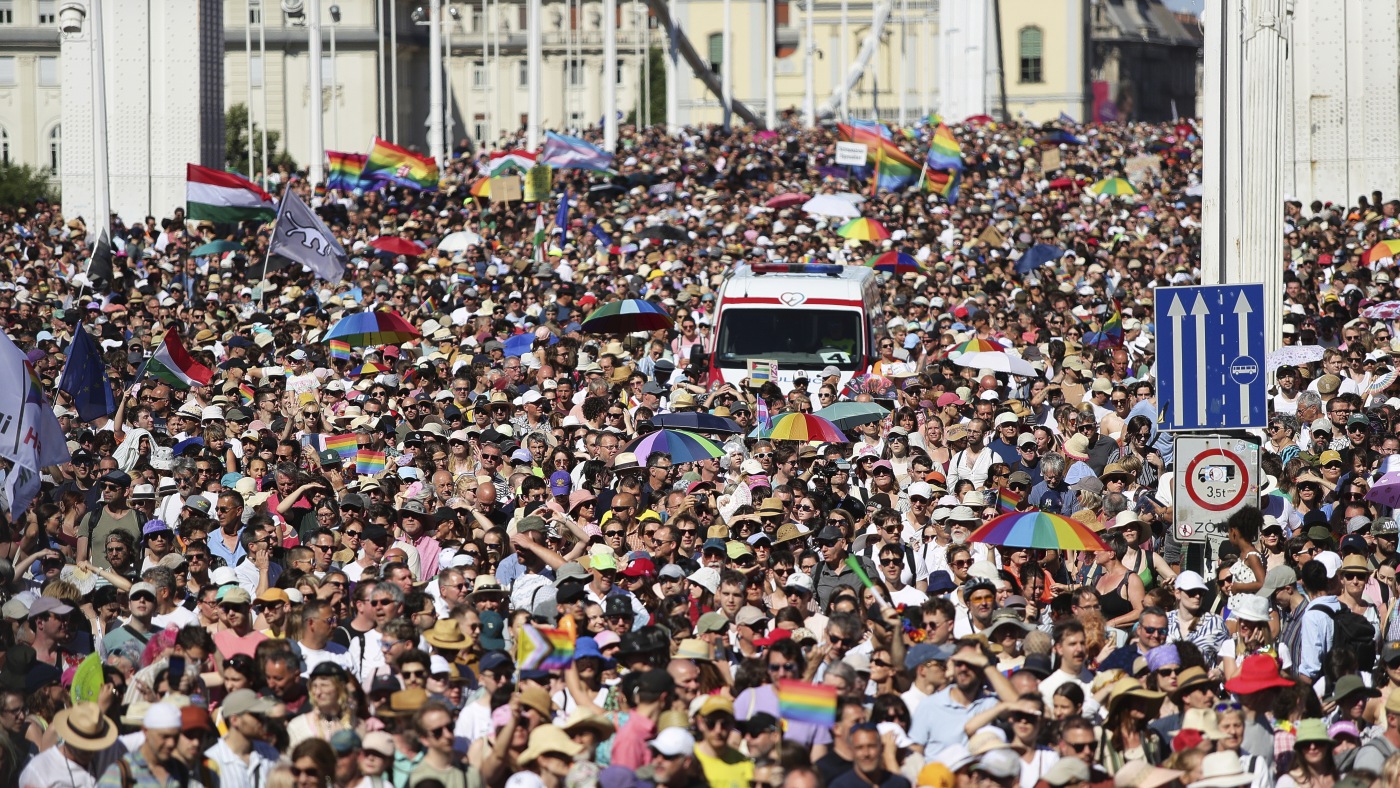The recent Budapest Pride event marked a significant and historic moment in Hungary’s ongoing struggle over LGBTQ+ rights, freedom of assembly, and state authority. Approximately 100,000 participants took to the streets in defiance of a government-imposed ban, making it the largest Pride march in Hungary’s history. This event encapsulates deep social, political, and human rights tensions that ripple far beyond Hungary’s borders.
The context of Hungary’s ban on Pride marches is rooted in the broader political and social landscape of the country. Earlier in 2024, the Hungarian government, led by Prime Minister Viktor Orbán’s conservative administration, enacted a law explicitly banning assemblies supporting LGBTQ+ rights. This law criminalizes participation in such events, imposing fines of up to 200,000 Hungarian forints (around $586), and represents one of the most restrictive anti-LGBTQ+ legal measures within the European Union. The rationale behind the ban, as expressed by government officials, aligns with Orbán’s nationalist and socially conservative policies, which emphasize traditional family values and a rejection of what they term “Western liberalism.” However, many observers see this law as a direct attack on civil liberties and minority rights, pushing back against a wider European inclination towards LGBTQ+ inclusivity.
The massive show of defiance by over 100,000 marchers despite the ban and the threat of fines or police intervention transformed the 30th annual Budapest Pride into an unprecedented act of civil disobedience. This demonstration, staged under the banner of freedom and human dignity, came with substantial risk to its participants, symbolizing a resolute stand against state repression. Budapest’s liberal mayor supported the event, stoking tensions between municipal governance and national authorities. The police issued formal bans and warnings, but the march proceeded without significant violent clashes, highlighting both the determination of the LGBTQ+ community and allies, as well as the international attention the event garnered.
The significance of this event for LGBTQ+ rights in Hungary and beyond cannot be overstated. For Hungary’s LGBTQ+ population, the massive turnout is an affirmation of visibility and resilience amid an increasingly hostile environment. It underlines the community’s refusal to be erased or silenced and highlights the systemic challenges they face under Orbán’s regime. On an international scale, the event has spotlighted Hungary as a focal point of controversy in human rights within the EU. Hungary’s slide down EU LGBTQ+ equality rankings illustrates the broader implications of such policies for the country’s relations with European institutions committed to upholding fundamental rights. The march has also emboldened activists and allies across Europe and beyond, signaling that repression can provoke stronger movements for equality and justice, not submission.
The political and social ramifications of Budapest Pride’s defiance of a direct government order are profound. This event challenges Hungary’s internal politics and raises constitutional questions about the right to assembly and expression. It exposes the friction between Hungary’s nationalist government and local democratic actors, such as Budapest’s city officials who have refused to bow to the ban. Socially, the event draws attention to the precarious situation faced by LGBTQ+ people under Hungarian law, raising awareness among the public about the stakes involved. Media coverage and participation by international figures and European Parliament members further elevate the discussion on governance, human rights, and the future direction of Hungary’s democratic norms.
The future outlook following this historic Pride march is one of cautious optimism. While the immediate risk of fines and governmental backlash remains, the large-scale turnout signals a potentially stronger and more unified resistance against anti-LGBTQ+ legislation. This event may inspire additional legal challenges and social campaigns in Hungary, encouraging broader discourse on minority protections and civil freedoms. Moreover, the symbolic weight of the march may pressure the Hungarian government internally and externally, especially from EU bodies watching compliance with union values on human rights. The government’s attempt to ban the march paradoxically galvanized support and visibility for the LGBTQ+ cause, illustrating how authoritarian measures can sometimes backfire.
In conclusion, Budapest Pride’s record-breaking march embodies a profound act of courage and hope. Against the backdrop of a restrictive legal framework and state opposition, tens of thousands united in the streets not only to celebrate LGBTQ+ identity but to demand dignity, equality, and freedom. This event crystallizes the tension between authoritarian governance and grassroots democratic resistance. Its scale and spirit remind the world that controlling narratives or suppressing basic rights often ignites stronger demands for justice. As Hungary navigates its political path, the memory and impact of this historic Pride march will endure as a testament to resilience and the unwavering human quest for liberty and recognition. The hundreds of thousands who marched are not just participants in a parade—they are protagonists in a larger story about freedoms that transcend national borders and inspire global solidarity.











